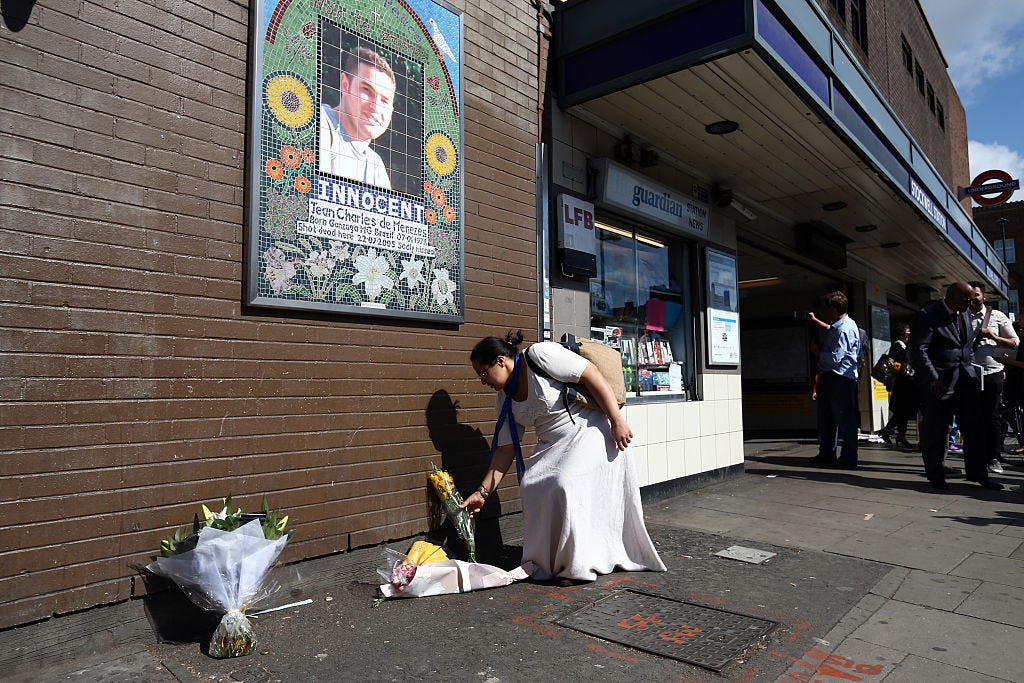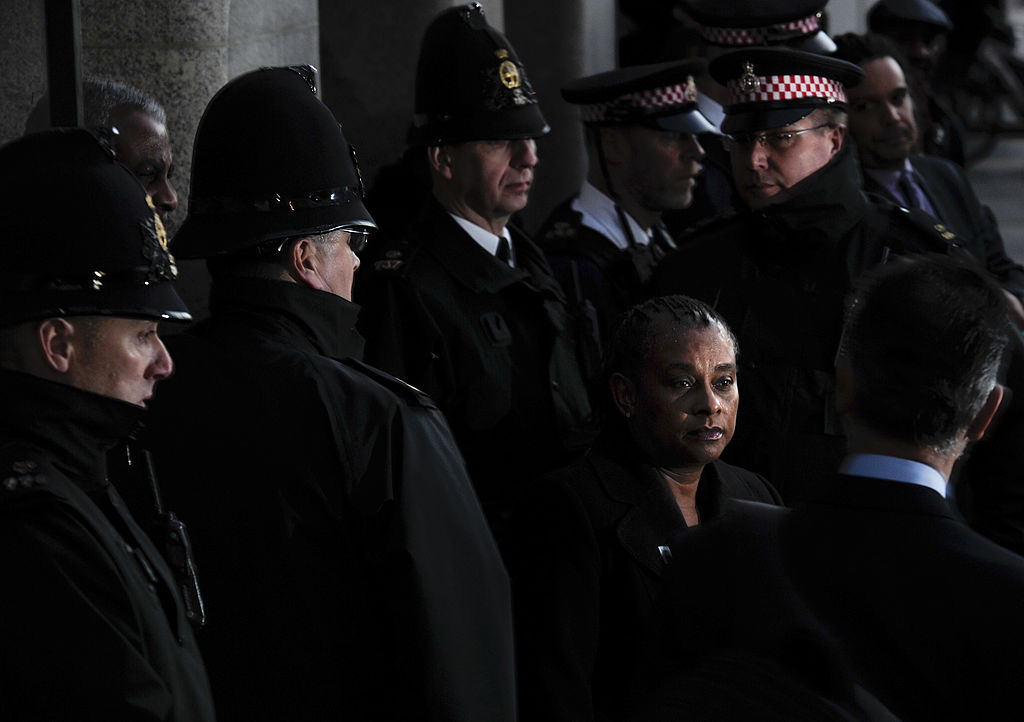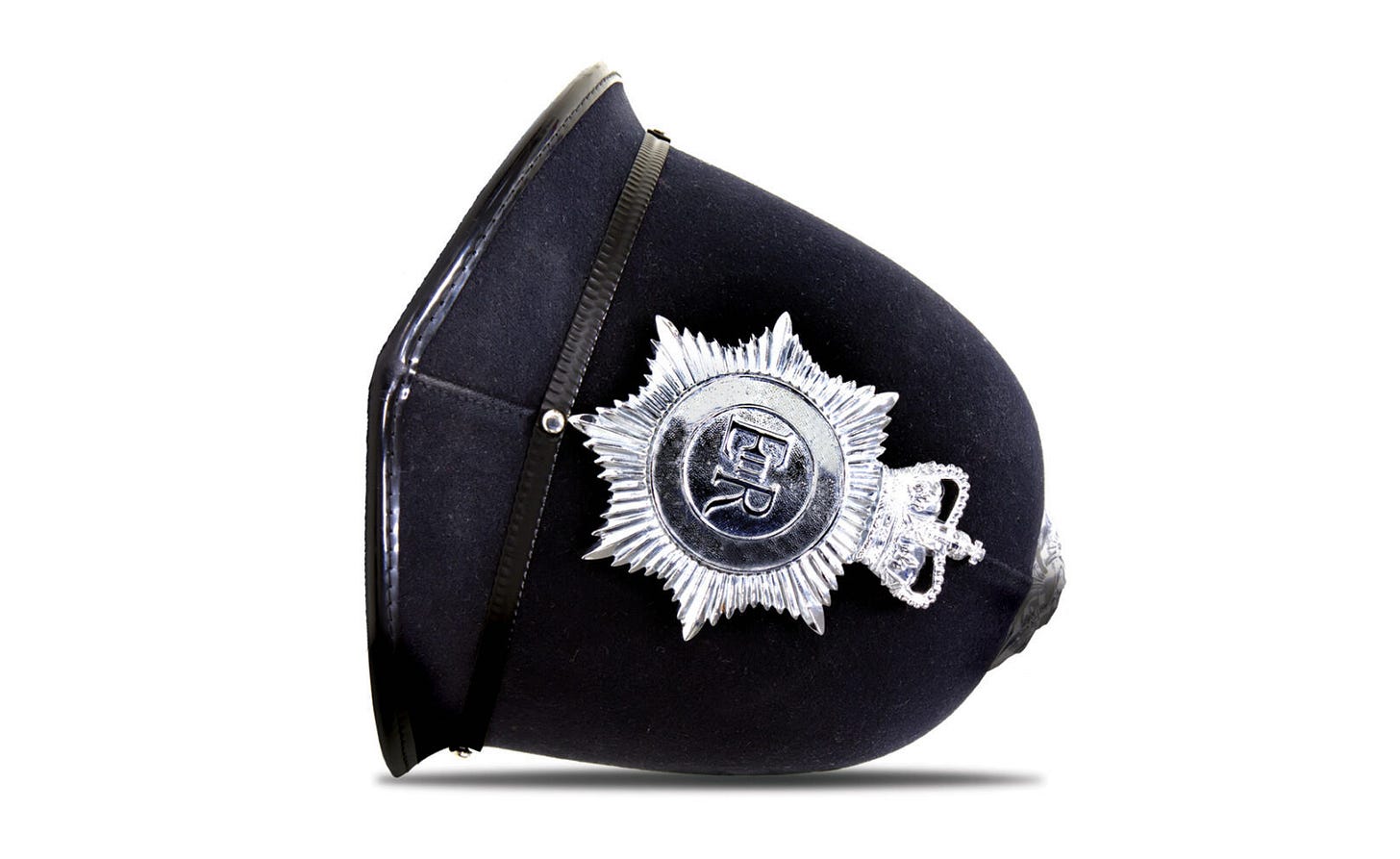Is the Met beyond repair?
Talking to Tom Harper about the fall of the force
Tom Harper was an investigative reporter at the Sunday Times and The Independent for more than fifteen years. During that time he frequently wrote about the Metropolitan Police Service and Scotland Yard, a process he likens to “witnessing a slow-motion car crash”.
A few days before Baroness Casey published her review describing the Met as unacceptably discriminatory and institutionally biased, we spoke to Tom about his new book, Broken Yard - The Fall of the Metropolitan Police, a “searing account of corruption, racism and mismanagement inside Britain’s most famous police force,” which was published at the start of this month.
The first question we want to ask Tom Harper about his book on the fall of the Met is how the hell did he choose where to start? The 70s and Operation Countryman? The 80s and the murder of Daniel Morgan? Or the 90s and the murder of Stephen Lawrence?
His answer hammers home the fact that the ‘fall’ referred to in the subtitle of his book doesn’t just refer to the Met’s crumbling reputation and standards, it’s also about the calamitous drop in power and influence that the force once wielded.
“I start chapter one in 1993 with the death of Stephen Lawrence,” Harper says, in answer to the question. “Although I do examine the Daniel Morgan murder later on in the book, I chose to start with Stephen Lawrence not only because I think that case had a bigger impact on policing but because there was also a lot going on in policing in 1993. Ken Clarke was Home Secretary and was trying to institute big reforms of the police and they pushed back against it. They basically said ‘No, that’s not happening’.”
Clarke was later moved to the Treasury and when Michael Howard replaced him as Home Secretary the reforms were dropped because, as Harper puts it, “Howard didn’t want to upset the police”. For Harper 1993 is ground zero for a story which sees the Met go from being “incredibly powerful, on the front foot and able to confront and challenge their political masters” to a place where they are “completely on the back foot and very much weakened”.
Harper is uniquely placed to write this story because, not only has he lived in London his whole life (apart from “three years in the north of England for uni’”) but he became a journalist in 2006, joining National Newspapers shortly after the shooting of Jean Charles de Menezes by Met officers at Stockwell Tube station.
“I became a journalist during a very tumultuous time for the Met and I’ve covered the force since then really,” Harper explains. “I wasn’t an official crime reporter for all that time. I was a general investigative reporter, but with a lot of focus on the Met and policing. When you’ve covered it for so long you accrue so much information, and you can’t always distil it into 700 word news stories.”
The bigger story behind the scandals
If you’re reading this newsletter then there’s a good chance you’ll already know much about the 17 cases examined in this book. From the murders of Morgan and Lawrence to Operation Midland and Plebgate, right through to Partygate. But there are plenty of revelations in Broken Yard (some of them uncovered by Harper himself in his previous life as a journalist) alongside insights from insiders who seem to have spoken relatively openly and frankly to Harper about the challenges facing the Met.
But the real power of the book comes from Harper’s ability to fit all these individual pieces together and form a broader picture that’s much greater than the sum of its parts.
“There’s a huge amount of context around these stories that sometimes gets missed,” Harper says, “and I thought a book would help bring that all together. These individual scandals blow up, then they dissipate, everyone tends to moves on and then it happens again a year or two later. I care about policing and how they public is served by police officers, and it just seems to be a desperately difficult situation for everyone. So the book is a way of trying to condense everything down and to make an argument and offer some thoughts on how things might improve.”
That care Harper talks about is more than evident in the book, which is not the one-sided ‘Met bashing’ that it could easily have been.
“Anyone that asks questions of the Met is deemed to be not ‘on side’ and therefore a troublemaker,” Harper says with a weary smile. “But I hope that the book shows that I’m not anti-police. I care very much about the police and all my contacts are police officers who also care about the force and are worried about where it’s gone to in these last few years.”
Indeed many of the stories in Broken Yard are centred around what Harper describes as ‘heroic’ officers; those who had to “swim against the corporate tides within the police”. People like DCI Clive Driscoll who brought two of Stephen Lawrence’s killers to justice, or David McKelvey who took on the David Hunt organised crime gang (and had a contract taken out on his life), and PC Keith Palmer, who was killed defending the Houses of Parliament in 2017.
Beyond those tales of bravery and honour though, are the stories of racism, homophobia, misogyny, abuse and corruption that have plagued the Met for years, and which only seem to have become more frequent over the past few years.

When the bad apples get promoted
When it comes to diagnosing the root of the sickness at the heart of the Met, it’s hard not to get into a circular debate with so-called ‘bad apples’ on one side and mismanagement and years of budget cuts on the other. While Harper’s book shines more light on both sides of that argument it also demonstrates what happens when those in the ‘bad minority’ are actively encouraged by a broken system.
“The dumbing down of training is something I pick up on in the book,” Harper says. “There used to be much more rigorous training back in the 80s but it began to get dismantled in the 90s. Because those standards slipped, more people started becoming Detectives. These are supposed to be the elite unit of investigators within the Met, the ones who show the most intelligence, aptitude and drive; and traditionally they are very highly trained. They had to put a lot of groundwork in as ‘bobbies on the beat’ and show their capabilities before attaining the level of detective. Whereas now people are made detectives almost willy-nilly after having done almost nothing. Then they’re put in charge of complex, serious investigations.”
Ironically, this situation in which potentially unqualified officers are promoted to position of power, may have come about thanks largely to a yearning for greater fairness.
“The people that spoke to me for the book said that it came from a desire for equality,” Harper reveals. “People didn’t like the fact that there was this tiered hierarchy with different streams for different abilities. As far as some people were concerned, some officers were having their roots to advancement cut off by a system that was too selective. What people told me was that, in the end, those roots were opened up and the expectation of a candidate actually being qualified in some way just went out the window.”
Harper says that when he spoke to Clive Driscoll it was his view that most of the work in policing is done by constables and sergeants and, as Harper puts it, “Detectives will often want to stay at that rank in order to actually make a difference by solving crimes and bringing serious offenders to justice.”
Of course, that leaves the door to promotion open for those potentially ‘less capable’ officers; and, as Harper says, “They are often the ones that ended up running the force!”
“One of my sources recounted a story about his Commander, who was asked to give evidence in a court case,” Harper continues. “He contacted my source because, to quote him, ‘He was cacking his pants’. It turns out he'd never given evidence in a court case before. He just didn't know how to do it. As my source said, that should be absolutely fundamental. Any officer should understand that process and what is expected of them in that situation, otherwise, you can’t do the job.”

The Met versus the press
Another part of Broken Yard which has taken on even more relevance in the past few days is the chapter on the phone hacking scandal and Rupert Murdoch’s News International.
Harper himself worked at the Sunday Times for five years, so has a better view than most on what happened during that time when, as he describes it, “policing lost a lot of its support from both Westminster and its allies in the press.”
For Harper the phone hacking scandal and the Leveson Inquiry was “catastrophic for all parties involved, including the press, but it was catastrophic for the police as well. They lost a lot of their key allies like politicians - the Conservative party in particular - and Fleet Street. Those alliances have just disintegrated in the last few years and the phone hacking scandal was a big part of that.”
Broken Yard goes into detail about some the evidence that was withheld from the Leveson Inquiry, including evidence on the Daniel Morgan murder, and just how lightly the Met got off, even though two high-profile Scotland Yard officers were forced to resign over the whole affair.
“The Met was massively on the back foot,” Harper says, “it was open season on them. But they were able to use it for their own benefit by completely criminalising contact between reporters and police officers, which is ultimately to their benefit because they desperately want to control the flow of information to journalists.
“They hate it when journalists find out things that they don't want them to know, which is often embarrassing to the to the force itself. I’m not condoning leaks of private information about Hugh Grant being arrested or a stitch up where tabloid reporters are outside someone’s house intruding into private matters. But, by trying to stop public interest whistleblowers from speaking to the media they’ve completely thrown the baby out with the bath water. It means that reporters are getting more limited in what we can do and public interest whistleblowers are increasingly at jeopardy by dealing with us. Fundamentally, I don't think it’s a good thing for a democratic country to have those sorts of restrictions and those sorts of penalties.”
Any cause for optimism?
The final question we have for Harper is if he’s at all optimistic about the future of the Met. After all, we have a new Commissioner in place who has said that he’s “appalled by the extent of the findings” exposed in the Baroness Casey report. But will anything change?
“I'm not very optimistic,” Harper admits, “but I don’t think there’s no hope at all. They need a lot more resources for a start. They were cut back dramatically just as that explosion in online offences was taking off. But I don’t know where those resources are going to come from, with public spending so tight.”
Harper knows it’s not enough to just throw more money at the problem. “Like I said, the force needs to institute much more rigorous training,” he says, “and then there’s the toxic culture. Going right back to Jean Charles de Menezes, there was a chance then that the public might have understood how such a terrible mistake could have happened, but what shocked everyone was the way the Met dealt with it in the aftermath. For example, briefings about him that tried to paint him as acting suspiciously. That culture is still there, and I just don't know see you can reform that quickly. It will probably take many years to change that culture of defensiveness and cover-up.”


